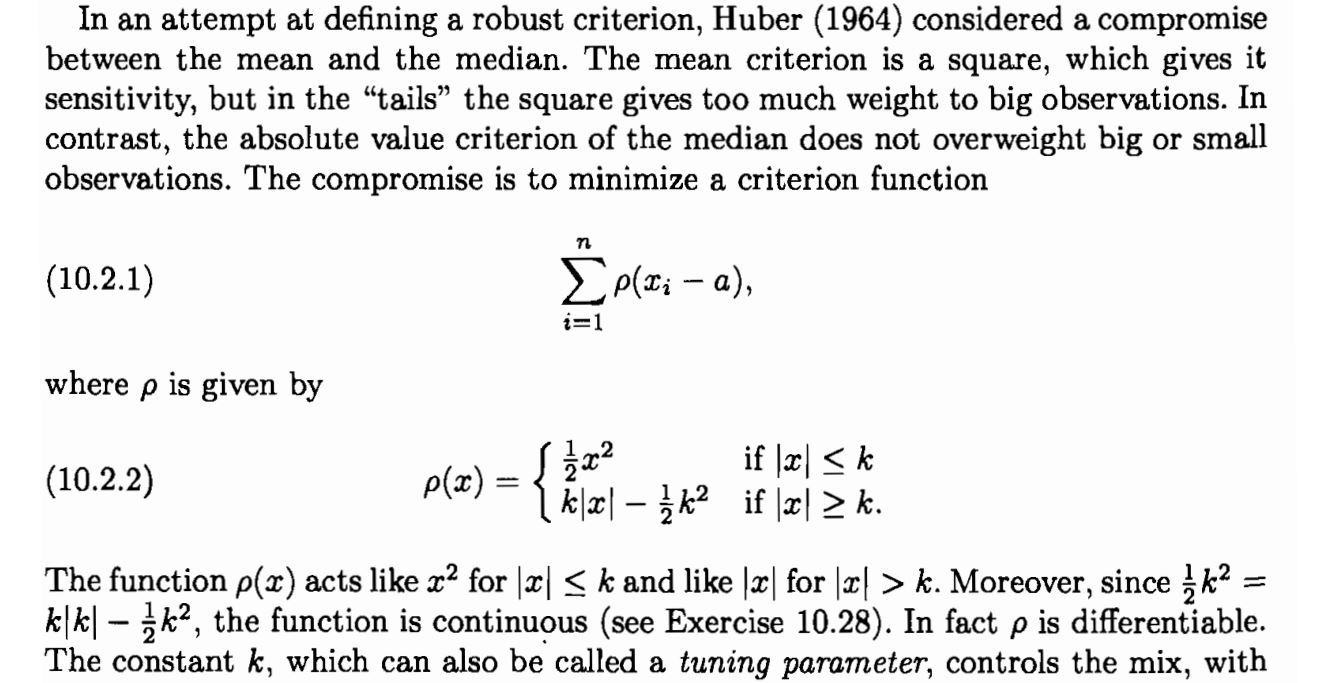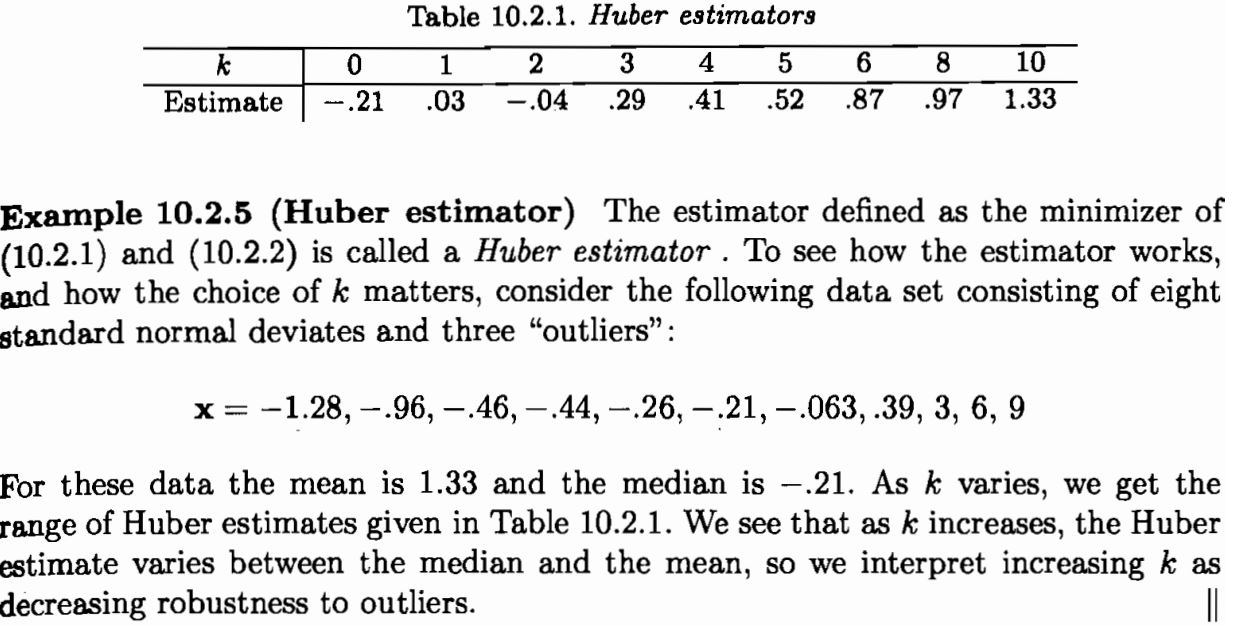In Casella and Berger (page484), the following Huber loss is defined.

Then on the next page, Table 10.2.1 shows the Huber estimator for different $k$:
In particular, $k=0$ gives the median, which doesn't make any sense. As when $k=0$, the Huber loss according to (10.2.2) is identically 0. But in order to get the median the huber loss has to be the absolute value (possibly with a shift). I guess the form of Huber loss that he gives here is wrong. What's the correct form of Huber loss then?
Thanks!

